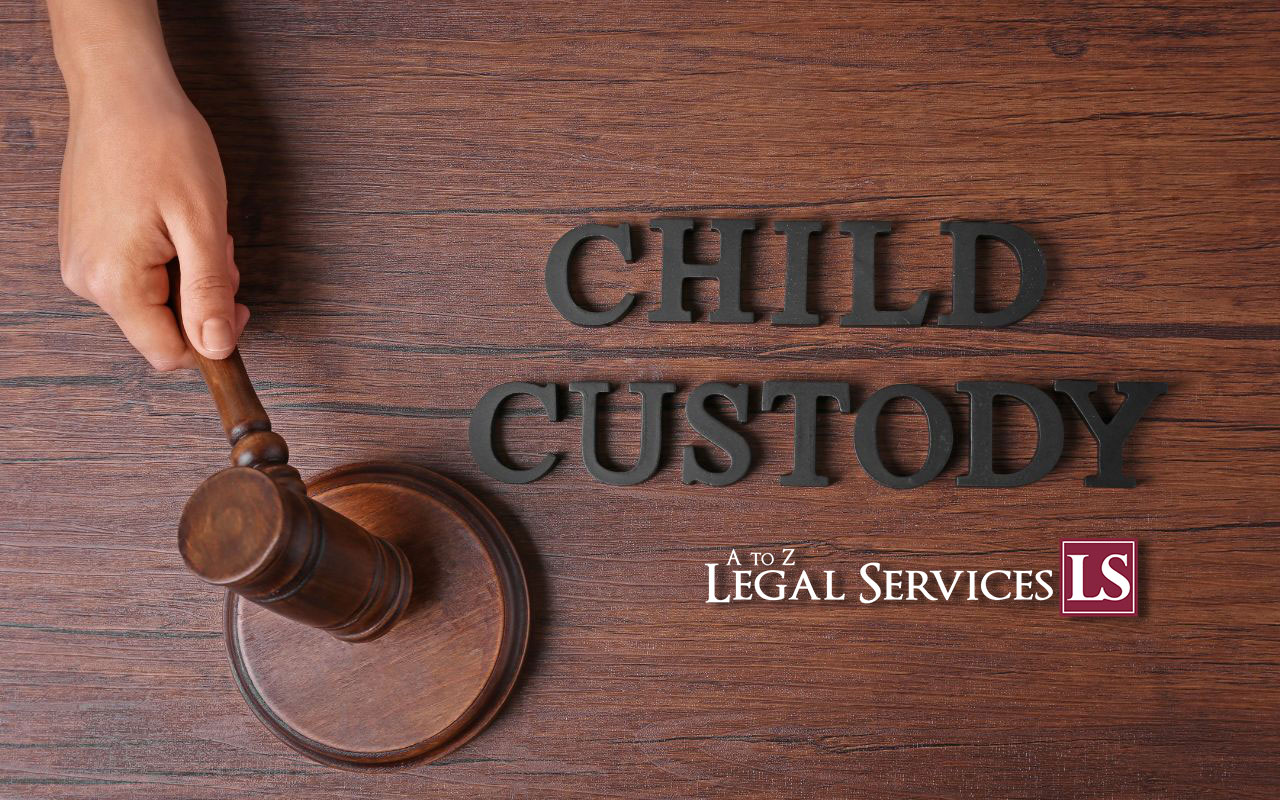
In this Article:
Exploring the Various Types of Child Custody
Types of Child Custody: Comprehensive Insights and Considerations
Sole Custody Vs. Joint Custody
Modifications in Child Custody
Understanding the Best Interest of the Child
Extra Information: Different Types of Child Custody
Tips for Navigating Child Custody Arrangements
Common Questions About Types of Child Custody
A to Z Legal Services: Your Trusted Partner in Navigating Child Custody
Navigating through the various types of child custody can be an overwhelming experience for parents amidst a separation or divorce. Understanding each custody type’s nuances is crucial, as it profoundly impacts the parents and the child’s future lives.
This comprehensive guide aims to elucidate the different forms of child custody, shedding light on what each entails and how decisions are generally reached in the legal system. Whether you’re at the onset of a custody battle or just exploring potential scenarios, having clarity on the options available is paramount.
Exploring the Various Types of Child Custody
When parents decide to separate or divorce, one of the most critical decisions they will face concerns their children’s welfare and living arrangements. Understanding the types of child custody is essential to making informed decisions that prioritize the child’s best interests.
These determinations will guide the parent-child relationship’s future dynamics and require thoughtful consideration and, often, legal guidance. Below, we delve into each custody type, offering insights into what they mean for all parties involved.
Types of Child Custody: Comprehensive Insights and Considerations

Legal Custody
Legal custody refers to a parent’s right to make significant life decisions on behalf of their child. These decisions may include healthcare, education, and religious upbringing. Often, courts prefer awarding joint legal custody, allowing both parents to share these decision-making responsibilities.
Physical Custody
Physical custody pertains to where the child resides the majority of the time. The parent granted primary physical custody often handles the child’s day-to-day care. However, in some cases, courts award joint physical custody, allowing the child to spend equal time with both parents.
Sole Custody Vs. Joint Custody
One parent assumes exclusive legal and physical custody rights concerning the child in sole custody arrangements. Conversely, joint custody allows parents to share these rights and responsibilities.
The choice between these two will depend on various factors, including parental cooperation, proximity, and the child’s specific needs.
Unmarried Parents and Custody
For unmarried individuals, custody arrangements can sometimes become complex. Typically, mothers are granted primary custody, but fathers can petition the court for custody and visitation rights. Establishing paternity is generally the first step in this process.
Modifications in Child Custody
Over time, existing custody arrangements may need modifications. These changes can be due to relocation, changes in a child’s health or behavior, or a parent’s altered living conditions. However, the court will always consider the child’s best interest when approving modifications.
Understanding the Best Interest of the Child
The legal system prioritizes the child’s best interests when deciding on custody matters. This broad term includes considerations of the child’s safety, the parental roles before the proceedings, the emotional bonds with parents, and the environment that best promotes growth and stability.
Extra Information: Different Types of Child Custody

In the realm of child custody, knowledge is not just power. It’s a pathway to ensuring your child’s well-being and emotional stability during a tumultuous time. Here are some tips, facts, and frequently asked questions regarding the types of child custody.
Tips for Navigating Child Custody Arrangements
Prioritize Communication: Keep lines of communication open with your ex-partner for your child’s sake. Effective communication can lead to amicable decisions that suit the child’s best interests.
Stay Informed: Understand your state’s laws concerning child custody, and stay updated on all court proceedings. Knowledge will empower you during negotiations or court decisions.
Document Everything: Maintain records of interactions with the child and the other parent, which may be helpful during custody discussions or alterations.
Consider the Child’s Wishes: Older children may have strong preferences about their living situations. While their desires should not be the sole deciding factor, they are an essential consideration.
Facts About Child Custody
- Joint custody is not always 50/50. Time division depends on various factors, including parental work schedules, the child’s schooling, etc.
- Custody orders are not final. They can be modified if the situation changes and it’s deemed necessary for the child’s well-being.
- Non-biological parents can, in certain situations, gain legal custody rights. This is often seen in cases involving adoption or when a non-biological parent has acted in a parental role for a significant time.
Common Questions About Types of Child Custody
What Influences a Court’s Decision on Custody?
Courts consider many factors, including each parent’s ability to care for the child, the child’s relationship with each parent, the health of all involved parties, and more. Stability is a crucial concern.
Can Grandparents or Other Relatives Be Granted Custody?
In certain situations, yes. If neither biological parent is fit to care for the child, grandparents or other relatives can petition for custody.
How Do Courts Handle Infants and Toddlers in Custody Decisions?
Courts give special consideration to very young children, focusing on stable routines, the primary caregiver’s identity, and the specific needs of children in this age group.
A to Z Legal Services: Your Trusted Partner in Navigating Child Custody
Having an adept legal ally is invaluable in the intricate and often emotionally charged process of determining child custody. A to Z Legal Services has garnered trust and acclaim through our unwavering commitment to advocating for your child’s best interests.
Let A to Z Legal Services guide you with professionalism, empathy, and expertise. Contact us today to secure a future that puts your child first.
